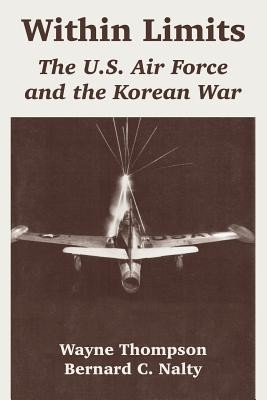
- We will send in 10–14 business days.
- Author: Wayne Thompson
- Publisher: University Press of the Pacific
- Year: 2005
- Pages: 60
- ISBN-10: 1410220168
- ISBN-13: 9781410220165
- Format: 15.2 x 22.9 x 0.4 cm, softcover
- Language: English
- SAVE -10% with code: EXTRA
Reviews
Description
Despite American success in preventing the conquest of South Korea by communist North Korea, the Korean War of 1950-1953 did not satisfy Americans who expected the kind of total victory they had experienced in World War II. In that earlier, larger war, victory over Japan came after two atomic bombs destroyed the cities of Hiroshima and Nagasaki. But in Korea five years later, the United States limited itself to conventional weapons. Even after communist China entered the war, Americans put China off-limits to conventional bombing as well as nuclear bombing. Operating within these limits, the U.S. Air Force helped to repel two invasions of South Korea while securing control of the skies so decisively that other United Nations forces could fight without fear of air attack.
EXTRA 10 % discount with code: EXTRA
The promotion ends in 20d.17:39:07
The discount code is valid when purchasing from 10 €. Discounts do not stack.
- Author: Wayne Thompson
- Publisher: University Press of the Pacific
- Year: 2005
- Pages: 60
- ISBN-10: 1410220168
- ISBN-13: 9781410220165
- Format: 15.2 x 22.9 x 0.4 cm, softcover
- Language: English English
Despite American success in preventing the conquest of South Korea by communist North Korea, the Korean War of 1950-1953 did not satisfy Americans who expected the kind of total victory they had experienced in World War II. In that earlier, larger war, victory over Japan came after two atomic bombs destroyed the cities of Hiroshima and Nagasaki. But in Korea five years later, the United States limited itself to conventional weapons. Even after communist China entered the war, Americans put China off-limits to conventional bombing as well as nuclear bombing. Operating within these limits, the U.S. Air Force helped to repel two invasions of South Korea while securing control of the skies so decisively that other United Nations forces could fight without fear of air attack.


Reviews